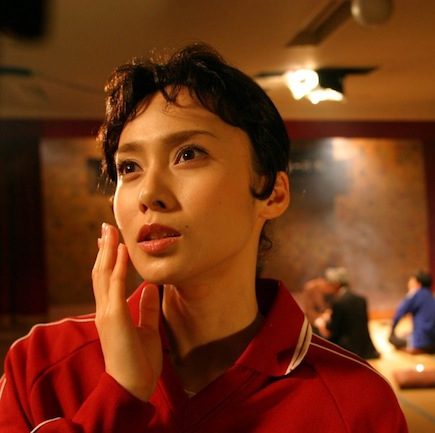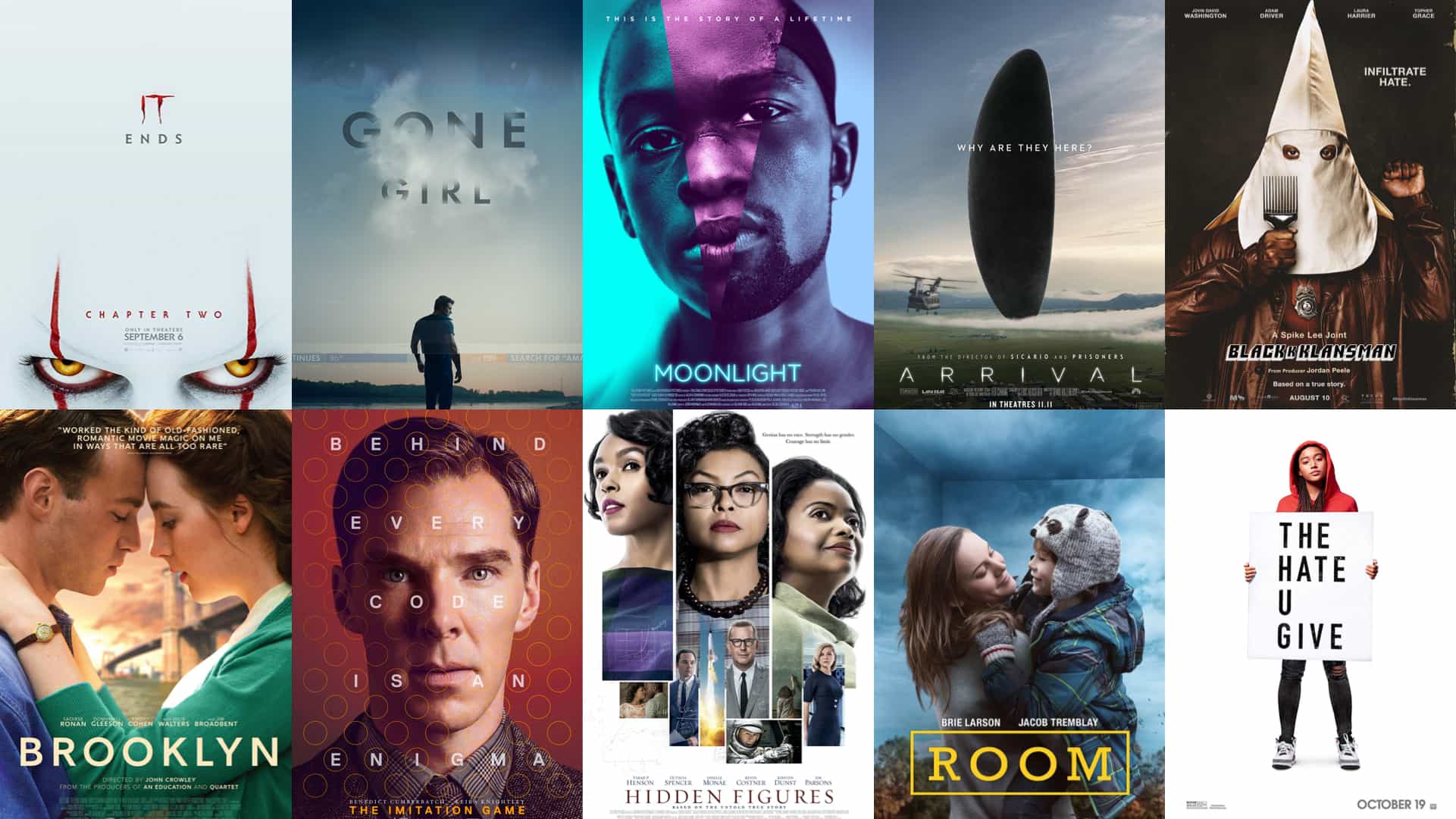Greatest Film Adaptations: Turning Pages into Pictures
The art of adapting literature to the big screen has been a long-standing practice in Hollywood and beyond. Film adaptations take beloved novels, riveting short stories, or even expansive series and transform them into visual spectacles that captivate audiences worldwide. The process demands a delicate balance: staying true to the source material while making it accessible and engaging for viewers who may or may not be familiar with the original text.
One of the greatest challenges faced by filmmakers in this endeavor is deciding which elements of the book are essential and which can be altered or omitted for the sake of cinematic flow. Despite the potential pitfalls, countless film adaptations have not only captured the essence of their literary counterparts but have also managed to stand alone as extraordinary films. In this article, we delve into some of the most successful film adaptations that have carved a niche for themselves in cinematic history.
The Godfather (1972)
Francis Ford Coppola's "The Godfather" is widely regarded as one of the greatest films ever made, transcending its genre to become a cultural phenomenon. Adapted from Mario Puzo's novel of the same name, the film chronicles the powerful and intricate world of the Corleone crime family. What makes "The Godfather" a standout adaptation is its meticulous commitment to the aura and spirit of Puzo's narrative while enhancing it with stunning performances by Marlon Brando, Al Pacino, and James Caan.
The film, much like the novel, explores themes of loyalty, power, and the American Dream, but Coppola's directorial prowess brings an added layer of depth and gravitas. The transition from page to screen for "The Godfather" involved careful attention to dialogue, setting, and pacing. Its success can be attributed to a seamless blend of compelling storytelling and the visual poetry of cinema.
To Kill a Mockingbird (1962)
"To Kill a Mockingbird," directed by Robert Mulligan, is an adaptation of Harper Lee’s Pulitzer Prize-winning novel. The film is a landmark in American cinema, embodying the nuances of its source material—a poignant exploration of racial injustice and moral growth in the Deep South during the 1930s. Anchored by Gregory Peck's Oscar-winning performance as the steadfast Atticus Finch, the film remains faithful to the novel's narrative while bringing added layers of visual storytelling.
The adaptation captures the heart of Lee’s novel with its powerful symbolism and emotive storytelling. It invites the audience to witness the world through the eyes of Scout Finch, adding layers of innocence and curiosity to its portrayal of serious social issues. Through careful casting choices and understated direction, the film stands as a timeless adaptation that honours its source.
The Lord of the Rings Trilogy (2001-2003)
Peter Jackson’s "The Lord of the Rings" trilogy is a monumental achievement in the realm of film adaptations. Based on J.R.R. Tolkien’s high-fantasy epic, the trilogy masterfully brings the intricate and expansive world of Middle-earth to life. With its breathtaking visual effects, compelling performances, and a rousing score by Howard Shore, the film series remains one of the most ambitious and successful adaptations ever undertaken.
Jackson faced the formidable challenge of adapting a complex narrative with a richly detailed world and extensive lore. Through the use of innovative technology and his devotion to Tolkien's work, Jackson and his team ensured that the essence of the books was not only preserved but enhanced. This trilogy stands as a testament to the power of cinematic vision in translating literary magic into an immersive and unforgettable film experience.
Pride and Prejudice (2005)
Jane Austen’s "Pride and Prejudice" has been adapted numerous times, but Joe Wright’s 2005 film manages to capture the spirit and wit of Austen's classic novel with a fresh perspective. Keira Knightley stars as the fiercely independent Elizabeth Bennet, with Matthew Macfadyen as the enigmatic Mr. Darcy. Wright’s adaptation combines the lush visuals of the English countryside with the intimacy of Austen’s character-driven narrative.
The film captures the delicate social dynamics and moral commentary that Austen weaves through her work, while also injecting a cinematic vibrancy that keeps modern audiences engaged. By focusing on the emotional depth of its characters and the romance that blooms against societal constraints, Wright’s "Pride and Prejudice" is celebrated as an adaptation that respects its heritage yet stands on its own merit.
Harry Potter Series (2001-2011)
The "Harry Potter" film series, based on J.K. Rowling's magical book series, is a prime example of a successful film adaptation that captivated millions around the globe. Over the course of ten years and eight films, the series adeptly captured the enchanting world of Hogwarts School of Witchcraft and Wizardry, bringing to life the richly imagined universe that fans had fallen in love with on the page.
Producer David Heyman, along with a talented ensemble cast led by Daniel Radcliffe, Emma Watson, and Rupert Grint, worked in harmony to convey the evolving narrative and themes of Rowling’s books—from the innocence and wonder of early youth to the darker, more complex emotions experienced as the characters mature. Directors such as Chris Columbus, Alfonso Cuarón, and David Yates each brought their unique styles to the films, ensuring a seamless narrative flow while respecting the continuity and growth inherent in the series.
The Shawshank Redemption (1994)
"The Shawshank Redemption," directed by Frank Darabont, is often hailed as one of the greatest films of all time. Based on Stephen King’s novella "Rita Hayworth and Shawshank Redemption," this film is an exemplary transformation of text to screen that amplifies the themes of hope, friendship, and redemption. Tim Robbins and Morgan Freeman lead the cast with performances that profoundly capture the spirit of King’s writing.
The film’s success lies in its fidelity to King's eloquent storytelling and its exploration of the lived experiences of life within the confines of Shawshank Prison. Darabont expands the narrative artfully, employing powerful cinematography and a poignant score by Thomas Newman to evoke an emotional response from audiences. As such, "The Shawshank Redemption" transcends its original novella, securing a place in cinematic history as an adaptation that gracefully melds textual and visual artistry.
Fight Club (1999)
David Fincher’s "Fight Club," based on Chuck Palahniuk's novel, is an adaptation that pushes boundaries and provokes thought. The film captures the novel's raw energy and satirical critique of consumerist culture, augmenting it with Fincher’s visionary style. Brad Pitt and Edward Norton deliver unforgettable performances, encapsulating the visceral conflict and existential themes inherent in Palahniuk's prose.
"Fight Club" thrives on its ability to stay faithful to the novel's darkly comedic and subversive tone, while taking creative liberties in its visual execution. Fincher’s adept use of a gritty aesthetic, innovative special effects, and a memorable soundtrack, including music by the Dust Brothers, results in an adaptation that not only mirrors the book but elevates its social commentary to new heights.
The Silence of the Lambs (1991)
Jonathan Demme’s "The Silence of the Lambs," adapted from Thomas Harris’s novel, is a chilling psychological thriller that has left an indelible mark on both the adaptation genre and the broader cinematic landscape. The film remains notorious for its haunting depiction of the relationship between FBI trainee Clarice Starling, played by Jodie Foster, and the diabolical Dr. Hannibal Lecter, brought to life by Anthony Hopkins in one of the most iconic portrayals in cinema history.
The adaptation succeeds due to its methodical pacing and authentic portrayal of the cat-and-mouse game that unfolds between the protagonist and antagonist. By focusing on character development and atmosphere rather than relying solely on plot-driven suspense, Demme crafts a film that retains the psychological depth and thrilling narrative of Harris’s novel. The result is a masterclass in how to maintain the tension and intricacies of a psychological novel while creating a cinematic experience that grips viewers from start to finish.
Gone with the Wind (1939)
Victor Fleming’s "Gone with the Wind," adapted from Margaret Mitchell’s novel, stands as a historical epic that defined a generation of filmmaking. The film, which chronicles the life of Scarlett O’Hara during the American Civil War and Reconstruction Era, is renowned for its grand scope and ambitious storytelling. Vivien Leigh’s portrayal of the strong-willed Scarlett, alongside Clark Gable’s enigmatic Rhett Butler, remains iconic.
"Gone with the Wind" excels as an adaptation due to its ability to remain monumental in its depiction of romance, turmoil, and survival. While dramatizing the era with lavish production values, the film holds true to Mitchell’s complex character arcs and sweeping narrative. Although modern perspectives have critiqued its handling of themes and representation, its place in the history of film adaptations is undeniable due to its immersive storytelling and technical achievements in cinema.
Forrest Gump (1994)
"Forrest Gump," directed by Robert Zemeckis and based on the novel by Winston Groom, is a remarkable film adaptation that transcends the limitations often associated with adapting complex narratives for the big screen. Tom Hanks stars in the titular role, offering a performance that delivers both heart-warming and profound elements, solidifying the film as a beloved classic.
The film takes significant liberties with the source material, but it is these very deviations that allow "Forrest Gump" to resonate with a broader audience. Zemeckis adeptly uses visual effects to weave Gump into pivotal moments in American history, turning these historical landscapes into personalized experiences for the character. While the original novel is known for its satirical tone, the film captures its spirit through an emotional lens, celebrating the idea that an extraordinary life is often a matter of perspective.
Blade Runner (1982)
"Blade Runner" is a seminal work in the science fiction genre, directed by Ridley Scott and adapted from Philip K. Dick's novel "Do Androids Dream of Electric Sheep?" The film famously stars Harrison Ford as Rick Deckard and is lauded for its visually stunning and densely atmospheric portrayal of a dystopian future.
Scott’s adaptation is less a literal translation and more a visual homage to Dick’s richly layered themes of identity, humanity, and technology. The film retains the novel’s philosophical undertones but expands upon them with groundbreaking special effects, a haunting score by Vangelis, and deeply immersive production design. The complex moral questions posed by the film have prompted enduring discussions among audiences, firmly establishing "Blade Runner" as a cornerstone in both adaptation and science fiction cinema.
No Country for Old Men (2007)
Joel and Ethan Coen’s "No Country for Old Men," based on Cormac McCarthy’s novel, is a masterclass in adaptation that maintains the grim and unforgiving atmosphere of its source material. The film, which stars Javier Bardem, Josh Brolin, and Tommy Lee Jones, received critical acclaim for its ability to capture the unrelenting tension and stark depictions of fate and morality that define McCarthy’s work.
The Coens’ adaptation is notable for its fidelity to the novel, with much of the dialogue and pacing remaining intact, showcasing their respect for McCarthy’s minimalist writing style. By employing their signature blend of suspense, dark humor, and visual storytelling, the directors deliver a film that is as intense and riveting as the novel. The film’s exploration of existential themes and morally ambiguous characters ensures it remains a compelling watch, as well as a faithful adaptation.
The Great Gatsby (2013)
Baz Luhrmann’s adaptation of F. Scott Fitzgerald’s "The Great Gatsby" is a bold reimagining of the quintessential American novel. The film features Leonardo DiCaprio as the enigmatic Jay Gatsby and showcases Luhrmann’s distinctive flair for blending contemporary music and vibrant visuals with classic narratives.
While the film retains Fitzgerald’s exploration of the American Dream and the decadence of the Jazz Age, it brings a modern sensibility to these early 20th-century themes. Luhrmann’s adaptation leans heavily into stylistic excess, mirroring the opulence and extravagance of the Roaring Twenties depicted in the novel. Though some purists may critique its modernized elements, the film succeeds in capturing the spirit of Gatsby’s world, offering a contemporary lens through which to explore timeless themes.
Atonement (2007)
Joe Wright’s "Atonement," adapted from Ian McEwan’s acclaimed novel, is a poignant depiction of love, war, and redemption. The film is celebrated for its breathtaking cinematography, standout performances by James McAvoy, Keira Knightley, and Saoirse Ronan, and its faithful interpretation of McEwan’s complex narrative structure.
Wright’s adaptation captures the haunting elegance of its source material through its meticulous attention to detail and emotional depth. The director employs stunning visual sequences, such as the harrowing Dunkirk beach scene, to underline the novel’s themes of loss and atonement. The film’s ability to translate McEwan’s multifaceted storytelling to the screen with such grace and authenticity makes it a distinguished adaptation within modern cinema.
In conclusion, the art of adapting literature into film is a profound endeavor that bridges two distinct yet complementary mediums. Through the careful translation of themes, characters, and narratives, filmmakers create adaptations that honor their literary origins while offering new interpretations and added dimensions. The greatest film adaptations capture the essence of their source material and, in doing so, create cinematic experiences that resonate across generations, inviting viewers to engage with stories both familiar and newly discovered.















Comments